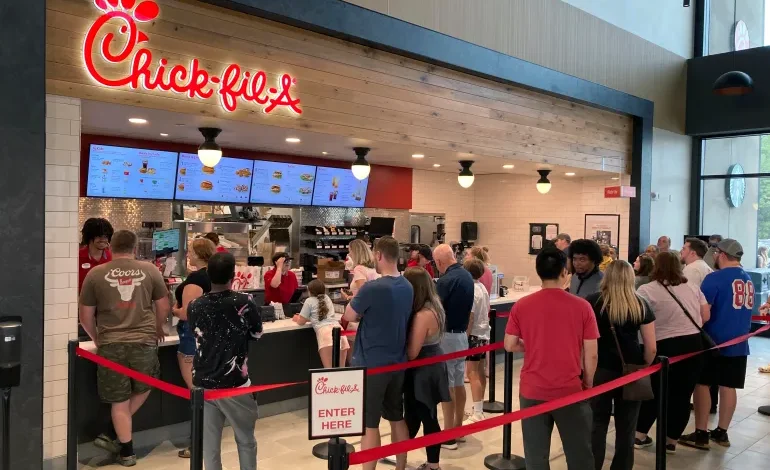Why are some US food producers using antibiotics in meat again?

Chick-fil-A is the latest restaurant chain in the United States to drop its promise of “no antibiotics ever” in its chicken products.
Several major companies, such as Tyson Foods, had made such a pledge but have shifted to excluding only antibiotics that would interfere with the effectiveness of human medicine.
Antibiotic-free meat commitments were intended to help prevent antibiotic resistance in humans, which has been linked to the rampant use of such drugs in livestock production. However, animal welfare and supply issues have created challenges.
Why have these policies shifted, and what does this mean for people’s health?
What has Chick-fil-A announced?
Chick-fil-A, which made its “no antibiotics ever” pledge in 2014 and fully implemented it in 2019, said in March that it will allow certain antibiotics to be used by its chicken suppliers from this spring.
The fast food chain is known for its chicken sandwiches and waffle fries. It also sells nuggets, chicken strips and beverages.
Suppliers will be allowed to administer antibiotics to chickens in the event that “the animal and those around it were to become sick” but only if those drugs are not important in human medicine, the restaurant said in a statement.
The initial commitment not to use antibiotics was prompted by consumer research the company undertook that revealed strong interest in how food is made and where it is sourced with particular interest in the use of antibiotics.
At the time, Dan Cathy, president and CEO of Chick-fil-A, also said offering antibiotic-free chicken was “the next step” in the company’s commitment to “using the highest quality ingredients”.
The policy shift, which Chick-fil-A said is intended to “maintain supply of the high-quality chicken you expect from us”, will apply to chicken served in its restaurants in the US, Puerto Rico and Canada. It plans to expand to the United Kingdom next year.
In a statement to the Reuters news agency, the company also said the policy change was due to challenges it foresees in sourcing chicken that “meets our rigid standards”.
Why and how are livestock given antibiotics?
Food providers say certain antibiotics are necessary to protect their animals from disease.
Allowing the use of antibiotics also means having a much wider choice of suppliers. Panera Bread, a bakery-cafe chain in the US and Canada, had a “no antibiotics ever” policy that constrained its pork supply options to just 5 percent of the market. It has now loosened its standards for food sourcing, internal documents seen by Reuters revealed.
The chain has directed its US stores to remove several food sourcing signs and artwork for its pork and turkey options, including “no antibiotics ever” and “vegetarian fed” wording. The new standards are expected to shave an estimated $21m off the company’s annual costs.










